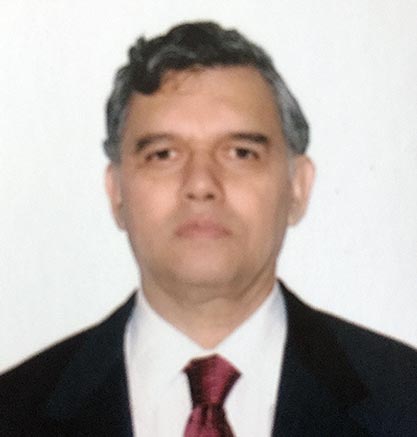-
CENTRES
Progammes & Centres
Location
The depletion of the IAS ranks should not be a worry as the Government seems to be moving in the direction of lateral entry — and a fresh infusion of bright people should cement any small cracks that may appear.

At the beginning of 2019, Shah Faesal, a J&K cadre officer (batch 2010) who had joined the Indian Administrative Service (IAS), sent in his resignation. More recently, in August 2019, Kannan Gopinathan (batch 2012), a AGMUT cadre officer too put in his papers. The last in the series of recent resignations was Sasikanth Senthil (batch 2009), a Karnataka cadre officer who resigned at the beginning of this month. An important fact to note is that all these officers were in their early administrative years and had only spent about a decade in the service.
It is not that premature departure from the service has been a complete rarity. A number of voluntary resignations from the IAS have taken place over the years. A few officers intermittently prefer not to finish their administrative innings and step out for a variety of reasons. These, however, are at more senior levels and closer to retirement with generally a clear intent to pursue a second career. Politics and private sector are two chosen areas of the second engagement. Serving officers, close to retirement switching to politics have been the subject of some controversy. Many consider this unethical and hold that such switchovers are vitiated by conflict of interest. Others feel that leaving civil service and joining public life involves no incompatibility. Early exit from civil service is actually a risk that officers are willing to take, giving up a sheltered career for the sake of uncertainty and risk in public life.
A number of voluntary resignations from the IAS have taken place over the years. A few officers intermittently prefer not to finish their administrative innings and step out for a variety of reasons. These, however, are at more senior levels and closer to retirement with generally a clear intent to pursue a second career.
The cited resignations, however, made headlines on account of the reasons they offered for their decision. Shah Faesal was driven to sever ties with the coveted service to protest “unabated killings in Kashmir” and the marginalisation of Indian Muslims. He further censured the Government of India for subverting public institutions like the Reserve Bank of India, Central Bureau of Investigation and the National Investigation Agency. Kannan felt his conscience was at unease. He remonstrated against the “denial of freedom of expression to the people living in Jammu and Kashmir.” “I had joined civil service with the hope that he can be the voice of those who have been silenced. But here, I lost my own voice,” he lamented. Senthil was deeply troubled by a widening democratic deficit in the country, claiming that the “fundamental building blocks of our diverse democracy are being compromised in an unprecedented manner.” The coming days, according to him, will present extremely difficult challenges to the basic fabric of the nation and that he will be better off outside the IAS to continue work at making life better for all. "It simply cannot be business as usual anymore," he said.
While Kannan and Senthil have still to apply their minds on their future course of action, the former wants to “remain connected with the people”. Neither of them has ruled out the idea of taking a political plunge. It appears pretty apparent, however, that they do not have plans to pursue another job-oriented career. Shah Faesal, on the other hand, has complete clarity about his future and has made up his mind to be in politics. At the launch of his political party ‘Jammu and Kashmir People's Movement’, Faesal said, “I welcome the people of Jammu and Kashmir who have come here to attend this rally. At first, I thought I will join any prominent political party of Kashmir Valley, but their reaction towards me was very negative. So, I decided to launch my own political party which will be a new platform for Kashmir Valley's youth.”
There should be no doubt that our politics is in need of better equipped people in the area of public policy.
How should one view such resignations from the IAS? One would believe that if the civil service exit is for entry into politics, this should be viewed as a positive trend. There should be no doubt that our politics is in need of better equipped people in the area of public policy. The ten-year stint of these officers in the civil service would have given them a grounding that they can very fruitfully use in politics. Since many political parties currently are in disarray and the juggernaut of the ruling political dispensation seems unstoppable, such entries may help shore up the opposition and bring some semblance of balance back into the country’s democratic polity. The depletion of the IAS ranks should not be a worry as the Government seems to be moving in the direction of lateral entry — and a fresh infusion of bright people should cement any small cracks that may appear.
As far as their perception of deepening democratic deficits are concerned, these are their personal views. Even if one were in disagreement with them, there can be no quarrel if an individual leaves service on that count. The observation of one of them, however, that he found he had lost his voice in the service and that he could not vent his opinions in the open is an argument that is specious and should have been obvious at the point of entry. It is manifest that when one joins an organisation, be it a political party or the civil service or a private company, one exercises freedom of speech within the four walls of that organisation. However, one cannot go public with his views. Institutional discipline demands that one cannot be its member and critique it from within. In the absence of such discipline, no organisation is likely to survive.
When a country struggles to contain the lengthening shadows of terrorism, then liberal, democratic governance suffers conscious setbacks. This is because the conservation of the State is the supreme goal for which temporary rollback of civil liberties is a price that has to be paid.
Another common thread that runs across these resignations is the observance that the nation’s democracy is in peril. The reference primarily is to the partial rollback of certain civil liberties in a particular union territory of the country. It is a universal truth that extraordinary situations call for extraordinary measures. Such situations down the history have not been tackled by additional dozes of democracy. When a country struggles to contain the lengthening shadows of terrorism, then liberal, democratic governance suffers conscious setbacks. This is because the conservation of the State is the supreme goal for which temporary rollback of civil liberties is a price that has to be paid. Terrorist attacks, wherever they have occurred, have activated repressive laws, the assertion of enhanced authority by the executive branch of governments and the enforcement of sweeping emergency powers ranging from the United States to France to South Africa. As concluded in ‘The Civil Liberties Implications of Counterterrorism Policies’ report of Freedom House, a human rights watchdog, “Throughout Europe, democratic governments have responded to the terrorist threat by tightening anti-terrorism laws, expanding the surveillance powers of the state, adding restrictions to the asylum and immigration process, and enabling the deportation of immigrants who, through action or word, seem to support terrorism.” This is with a view to enable governments to prevent disorder in the short run so that freedoms are preserved in the long run. In situations such as these, what is material is whether governments have gone overboard and assumed excessive and unwarranted authority.
Democracies do provide a sound mechanism for these through the media and the judiciary. The media must continue to ask searching questions about the consequences of policies, publicise acts of injustice against individuals or groups, and assess the efficacy of administrative efforts. For its part, the judiciary reviews laws and actions of the government and either validates them or mandates adjustments or reversals. Both these instruments of democracy appear robust in the country and clearly illustrate the strengths of Indian democracy.
The views expressed above belong to the author(s). ORF research and analyses now available on Telegram! Click here to access our curated content — blogs, longforms and interviews.

Dr. Ramanath Jha is Distinguished Fellow at Observer Research Foundation, Mumbai. He works on urbanisation — urban sustainability, urban governance and urban planning. Dr. Jha belongs ...
Read More +